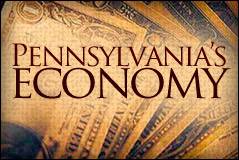Media

New Evidence: Taxes Stunt Economic Growth
A recent Mercatus Center study provides new evidence that higher state taxes correlate with reduced state economic growth.
Pavel A. Yakovlev, a professor at Duquesne University in Pittsburgh and member of the Commonwealth Foundation Council of Scholars, found higher taxes lead to reduced gross state product (GSP), reduced per-capita income, fewer new businesses, and less immigration.
A one percent average tax rate increase correlates with a 1.9 percent decrease in the GSP growth rate. When states have high taxes and more spending, they experience slower economic growth. This is no secret in Pennsylvania. As the Commonwealth’s taxing and spending increased from 1970 to 2012, economic growth lagged behind the national average.
A one percent increase in a state’s average tax rate correlates with a .07 percent decrease in per capita income. When taxes increase, extra costs are incurred, leading to layoffs and pay cuts.
A one percent increase in personal income tax progressivity correlates with a 1.2 percent decrease in the number of new firms in the state. Firms are more likely to leave or choose not to locate in a state where success dictates a higher tax burden.
As personal state income tax rates increase, immigration rates decrease. Income taxes—or lack thereof—play a role in where Americans choose to live. Four of the nine states with no income tax (Florida, Nevada, Tennessee, Washington) have the highest population growth rates in the nation.
Thanks to an unfriendly business climate, the 10th highest tax burden, and public sector unions calling for $1 billion in new taxes, it’s no wonder economic growth is stagnant in the Commonwealth.
Yakovlev’s study certainly comes as sobering news to high tax states across the country, including Pennsylvania. But the upside is a low-tax policy agenda can jump-start economic growth.